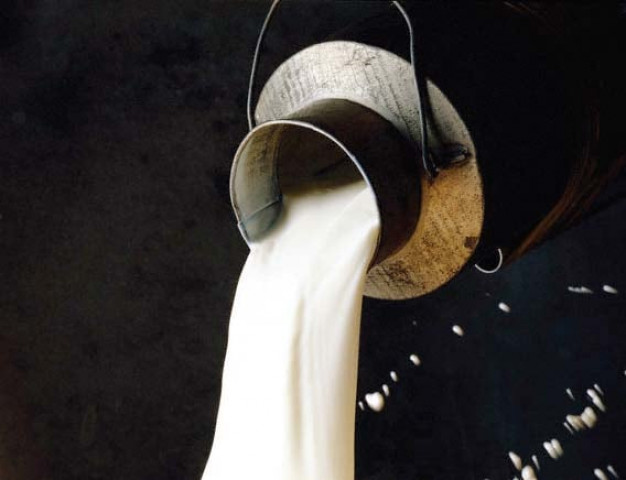Awareness drive: Safe milk movement for Pakistan launched
Nestle and TetraPak educate consumers on hazards of untreated milk.

The aim of this movement is to educate every Pakistani on the importance of consuming safe milk. PHOTO: FILE
To remedy this, Nestle Pakistan, a global food giant has kicked off the “Pakistan Safe Milk Movement” campaign, in collaboration with another multinational packaging giant TetraPak Pakistan. The aim of this movement is to educate every Pakistani on the importance of consuming safe milk.
Pakistani consumers are smart enough to make the right decision once given the right information, said Syed Babar Ali, a renowned entrepreneur and the member board of directors of Nestle Pakistan, while speaking at the occasion. This movement will result in improving the overall quality of dairy farming in Pakistan and has the potential of making Pakistan a major exporter of milk in the global market, Ali added.
Milk treated at Ultra High Temperatures (UHT), more commonly referred to as UHT milk, makes up around 3% of the total milk consumed in Pakistan. If we add the usage of pasteurised milk then this percentage comes to around 4%. Still 96% of milk being consumed in Pakistan is open milk, with a high ratio of adulteration, and this 96% is the huge market.
Nestle is involved in numerous initiatives to create shared values, including farmer development, training of female livestock workers through external dairy development projects and model farms among many others, said Waqar Ahmad, head of corporate affairs Nestle Pakistan.
Nestle purchases milk from more than 190,000 farmers daily through 3,500 milk collection centres in a 146,000 square kilometres area. With this the company has so far trained some 20,000 farmers.
Tetra Pak Pakistan is partnering with Nestle Pakistan in this movement.
“We realise and appreciate the need for creating awareness about milk safety”, said Osman Bucha, Director Marketing Tetra Pak Pakistan. Through an integrated awareness campaign supported by seminars, we see Nestle’s Pakistan safe milk movement as a platform for helping consumers in making informed decisions about what constitutes safe and hygienic food, he added.
Published in The Express Tribune, November 20th, 2013.
Like Business on Facebook, follow @TribuneBiz on Twitter to stay informed and join in the conversation.



















COMMENTS
Comments are moderated and generally will be posted if they are on-topic and not abusive.
For more information, please see our Comments FAQ